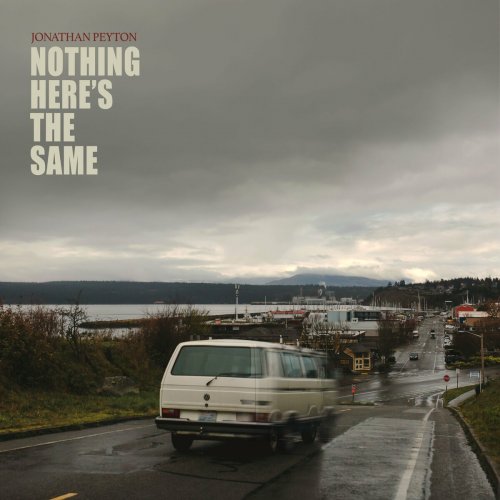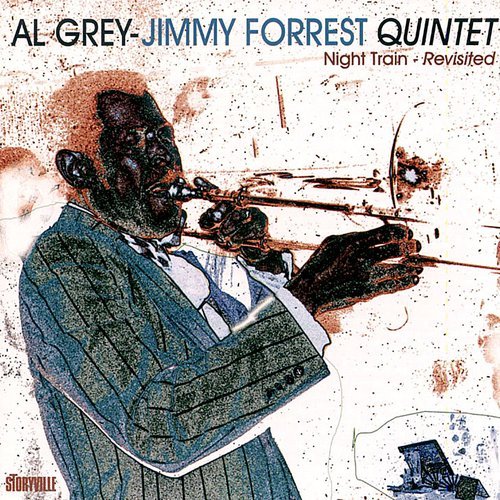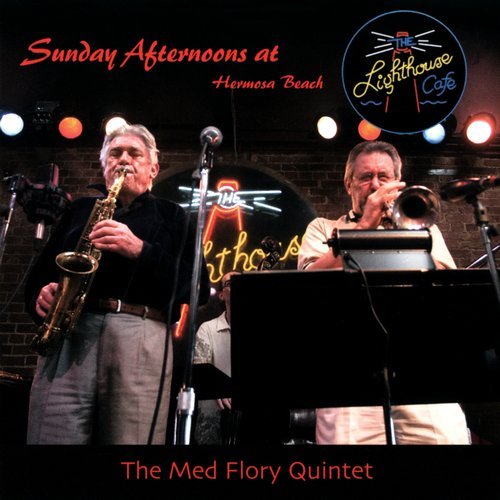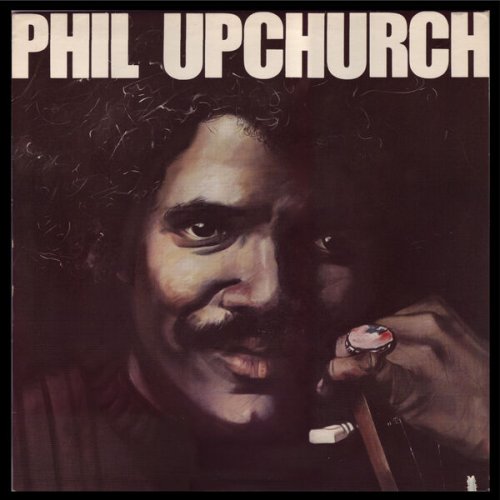Jonathan Peyton - Nothing Here’s the Same (2024)

Artist: Jonathan Peyton
Title: Nothing Here’s the Same
Year Of Release: 2024
Label: Independent
Genre: Folk Rock, Singer-Songwriter
Quality: 320 / FLAC (tracks)
Total Time: 47:42
Total Size: 111 / 289 Mb
WebSite: Album Preview
Tracklist: Title: Nothing Here’s the Same
Year Of Release: 2024
Label: Independent
Genre: Folk Rock, Singer-Songwriter
Quality: 320 / FLAC (tracks)
Total Time: 47:42
Total Size: 111 / 289 Mb
WebSite: Album Preview
01. To the Country (feat. Abigail Peyton) (4:46)
02. Anymore (3:49)
03. Indifference (3:32)
04. Insane (4:13)
05. No Amazing Grace (4:17)
06. Goin' Crazy (3:49)
07. Those Days Were Hell (3:19)
08. Between Your Lines (3:45)
09. Denial (3:39)
10. Sally (4:18)
11. Since You've Been Gone (3:26)
12. Silence (4:50)
Nothing Here’s the Same is about change. Sometimes change is a good thing and sometimes it’s not. It can be necessary and painful. It can be joyful and devastating. Sometimes the change within ourselves causes us to look at the world different. Nothing Here’s the Same documents Jonathan’s journey with change and the impact it’s had on his life.
Working through trauma is like tap dancing through a minefield – doubt, self-harm and backsliding are just a few of the potential explosions awaiting the average person in recovery. Now, imagine putting all of that into songs. Georgia-based Jonathan Peyton is doing just that. His second album, Nothing Here’s the Same, produced by The 400 Unit’s Sadler Vaden, has him facing abuse, toxic religious fervor and grief while also looking forward to what lies beyond the pain.
Nothing Here’s the Same begins with Peyton acknowledging all of the pent-up emotion in “To The Country” – “I’ve been walking in the shadows, in the shadows of my doubt.” Accompanied by acoustic guitar and a wisp of an organ line, Peyton shares verses with his wife Abigail, who undoubtedly knows his pain as well anyone – “I’ve been walking under moonlight to forget why I came/Out to the country where no one knows my name.” That need to dissociate also pops up in “Indifference,” an upbeat tune that pairs a dream about a house fire which Peyton seems resigned to be swallowed up by – “That’s when you saw me running like a thief in the night/Back to flames, to the place I called my home” – only to wake up and find himself fighting for the life he could lose – “Indifference got the better part of me/You know I don’t wanna walk away from all that could be.”
The deceptively uptempo “No Amazing Grace” addresses the false religion that came by way of a cult Peyton used to be involved in. Peppered with ghostly sounds of a heavenly choir, the song shows how folks get sucked in by a combination of promises – “If I had a dollar, if I had the faith/Would you heal these bones, what’s the price I’ll pay” – and desperation – “I don’t think it’s supposed to be this way/What’s a boy to do when he knows no way” – to find only emptiness: “No amazing grace, no sweet sound.” Another “cure” – and more emptiness – are found in “Those Days Were Hell.” Here, booze and bad parenting are shown to be a toxic mix – “I could tell by the way you walked through the door/How the night was gonna be.” Dad is in and out of his son’s life, but the family never seems to escape, not fully – “It was Christmas Eve and I couldn’t sleep/Knowing we lost the fight” (small musical salve – Vaden rips off a hell of a slide solo on this tune).
Nothing Here’s the Same is full of Peyton’s efforts to avoid stepping on those mines, but nowhere more so than in “Anymore.” Recognizing the best possible outcome – “There’s a part of you that will always believe/In the man that I am and the man that I could be” – can’t keep him from fearing the worst – “I don’t ever want to be the man I swore I’d never be/But sometimes it slips away from me.” That awareness, though, serves him well by album’s end. “Silence” has a foreboding tone to it, punctuated by a flat-out chilling organ line, and it recalls the fear and inaction that allow the cycle of violence to continue – “They said silence was golden so we learned to keep it down/To bite our tongues, keep our eyes to the ground.” By the end, though, Peyton renounces that silence, repeatedly and forcefully intoning, “Maybe we weren’t right when we said we’re alright.” Speaking – and singing – out create accountability in Peyton’s continued recovery but, more importantly, encourage others to reach out and help put an end to their own trauma.
Song I Can’t Wait to Hear Live: “Denial” – a screed against false piousness – “You always liked the praise/You leave out the part, you sold your soul to the devil in the night” – with some damn good fiddle/pedal steel/guitar interplay.
Working through trauma is like tap dancing through a minefield – doubt, self-harm and backsliding are just a few of the potential explosions awaiting the average person in recovery. Now, imagine putting all of that into songs. Georgia-based Jonathan Peyton is doing just that. His second album, Nothing Here’s the Same, produced by The 400 Unit’s Sadler Vaden, has him facing abuse, toxic religious fervor and grief while also looking forward to what lies beyond the pain.
Nothing Here’s the Same begins with Peyton acknowledging all of the pent-up emotion in “To The Country” – “I’ve been walking in the shadows, in the shadows of my doubt.” Accompanied by acoustic guitar and a wisp of an organ line, Peyton shares verses with his wife Abigail, who undoubtedly knows his pain as well anyone – “I’ve been walking under moonlight to forget why I came/Out to the country where no one knows my name.” That need to dissociate also pops up in “Indifference,” an upbeat tune that pairs a dream about a house fire which Peyton seems resigned to be swallowed up by – “That’s when you saw me running like a thief in the night/Back to flames, to the place I called my home” – only to wake up and find himself fighting for the life he could lose – “Indifference got the better part of me/You know I don’t wanna walk away from all that could be.”
The deceptively uptempo “No Amazing Grace” addresses the false religion that came by way of a cult Peyton used to be involved in. Peppered with ghostly sounds of a heavenly choir, the song shows how folks get sucked in by a combination of promises – “If I had a dollar, if I had the faith/Would you heal these bones, what’s the price I’ll pay” – and desperation – “I don’t think it’s supposed to be this way/What’s a boy to do when he knows no way” – to find only emptiness: “No amazing grace, no sweet sound.” Another “cure” – and more emptiness – are found in “Those Days Were Hell.” Here, booze and bad parenting are shown to be a toxic mix – “I could tell by the way you walked through the door/How the night was gonna be.” Dad is in and out of his son’s life, but the family never seems to escape, not fully – “It was Christmas Eve and I couldn’t sleep/Knowing we lost the fight” (small musical salve – Vaden rips off a hell of a slide solo on this tune).
Nothing Here’s the Same is full of Peyton’s efforts to avoid stepping on those mines, but nowhere more so than in “Anymore.” Recognizing the best possible outcome – “There’s a part of you that will always believe/In the man that I am and the man that I could be” – can’t keep him from fearing the worst – “I don’t ever want to be the man I swore I’d never be/But sometimes it slips away from me.” That awareness, though, serves him well by album’s end. “Silence” has a foreboding tone to it, punctuated by a flat-out chilling organ line, and it recalls the fear and inaction that allow the cycle of violence to continue – “They said silence was golden so we learned to keep it down/To bite our tongues, keep our eyes to the ground.” By the end, though, Peyton renounces that silence, repeatedly and forcefully intoning, “Maybe we weren’t right when we said we’re alright.” Speaking – and singing – out create accountability in Peyton’s continued recovery but, more importantly, encourage others to reach out and help put an end to their own trauma.
Song I Can’t Wait to Hear Live: “Denial” – a screed against false piousness – “You always liked the praise/You leave out the part, you sold your soul to the devil in the night” – with some damn good fiddle/pedal steel/guitar interplay.
![Pasquale Cataldi - Maybe (2026) [Hi-Res] Pasquale Cataldi - Maybe (2026) [Hi-Res]](https://www.dibpic.com/uploads/posts/2026-02/1771154794_shtkhljffl929_600.jpg)




![Jon Henriksson, Pelle von Bülow, Rasmus Holm - Monkurt (2026) [Hi-Res] Jon Henriksson, Pelle von Bülow, Rasmus Holm - Monkurt (2026) [Hi-Res]](https://img.israbox.com/img/2026-02/15/ja2eavgnqk7dn4c3l9myzfk37.jpg)
![Katrine Schmidt - Wearing My Heart On My Sleeve (2026) [Hi-Res] Katrine Schmidt - Wearing My Heart On My Sleeve (2026) [Hi-Res]](https://www.dibpic.com/uploads/posts/2026-02/1771145515_ugcrf0sr2pkvk_600.jpg)

